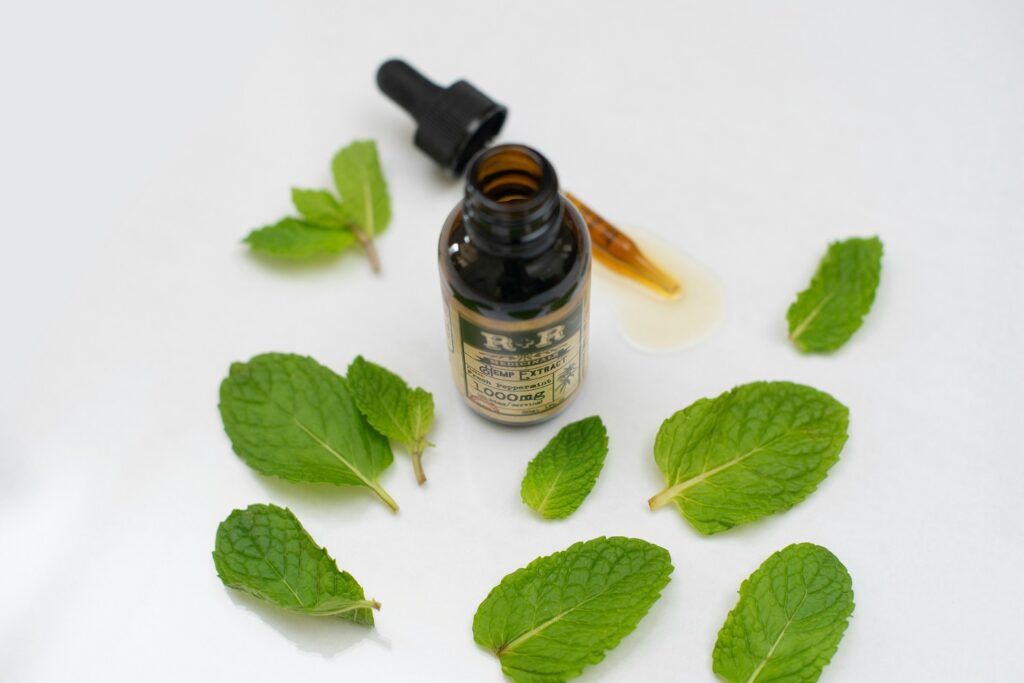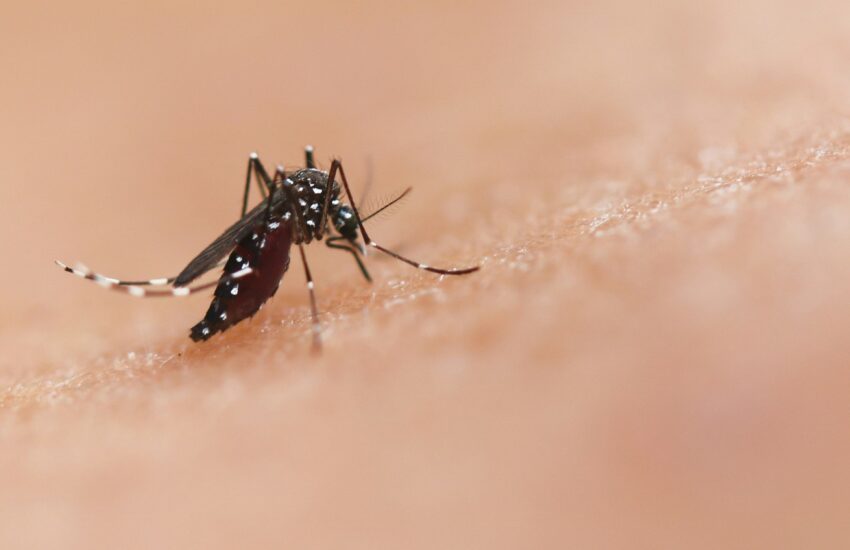Mosquitoes are not only an annoying presence in our outdoor spaces, but they also pose a serious health risk. In many parts of the world, mosquitoes are responsible for transmitting dangerous diseases such as malaria, dengue fever, Zika virus, and West Nile virus. As the warmer months approach, the increasing presence of mosquitoes becomes a concern for many people. While chemical repellents like DEET are commonly used to ward off these pesky insects, an increasing number of individuals are turning to natural alternatives for protection. Mohit Tandon suggested 10 Best natural Mosquito Repellents which are easy to use, and safe for both your skin and the environment.
Natural mosquito repellents, often derived from essential oils and plant-based ingredients. It provide an eco-friendly and safer option for keeping mosquitoes at bay. These natural solutions have been used for centuries, with many cultures relying on plants and herbs with repellent properties to prevent mosquito bites and avoid the diseases they carry. Not only are these alternatives free from the harsh chemicals found in commercial repellents, but they also offer soothing benefits, like calming scents and skin-healing properties, that make them appealing for both adults and children.
1. Lemon Eucalyptus Oil
Lemon eucalyptus oil has gained considerable attention in recent years as one of the most effective natural mosquito repellents. This oil is derived from the leaves of the lemon eucalyptus tree, native to Australia. The active ingredient responsible for repelling mosquitoes is PMD (p-menthane-3,8-diol), a naturally occurring compound that research has shown to be highly effective against mosquito species, including the ones that transmit diseases such as malaria and dengue.
Unlike DEET, the common synthetic chemical found in most commercial mosquito repellents, lemon eucalyptus oil provides a natural alternative without harmful side effects. It is also much more pleasant to use, offering a fresh, lemony fragrance rather than the chemical smell associated with conventional repellents.
To use lemon eucalyptus oil as a mosquito repellent, you can dilute it with a carrier oil such as coconut oil or olive oil and apply it directly to your skin. Typically, a 10-30% concentration of lemon eucalyptus oil in a carrier oil is recommended for safe and effective use. Be cautious with the oil’s concentration—higher concentrations may cause skin irritation, especially for sensitive individuals.
Lemon eucalyptus oil’s effectiveness lasts several hours, so reapplication may be necessary, especially in areas with high mosquito activity. It is also widely available in commercial mosquito-repellent products such as sprays, lotions, and candles. – Mohit Tandon

2. Lavender Oil
Lavender oil is not only famous for its soothing properties and relaxing scent but also for its ability to repel mosquitoes. The oil is extracted from the lavender plant (Lavandula angustifolia), which is native to the Mediterranean region. Lavender contains compounds like linalool and linalyl acetate, both of which have demonstrated mosquito-repellent effects in scientific studies.
The scent of lavender is pleasant and calming, making it a perfect choice for individuals who want to avoid the harsh smells of chemical repellents while keeping mosquitoes at bay. Lavender is particularly effective against Aedes mosquitoes, which are known to transmit diseases such as Zika and chikungunya.
In addition to its mosquito-repelling properties, lavender oil is known to have anti-inflammatory and antiseptic effects. It can help reduce itching and swelling from mosquito bites. If you do get bitten, applying diluted lavender oil to the affected area may help alleviate discomfort.
To use lavender oil as a mosquito repellent, you can mix a few drops of the oil with a carrier oil (like coconut or jojoba oil) and apply it to exposed skin. Alternatively, you can place lavender oil in a diffuser or use it in a candle to keep mosquitoes away from your home or outdoor spaces.

3. Citronella Oil
Citronella oil is perhaps the most widely recognized natural mosquito repellent. Derived from lemongrass, citronella is commonly used in candles, sprays, and lotions aimed at deterring mosquitoes. It works by masking the scents that attract mosquitoes, such as carbon dioxide and body odor, making it harder for mosquitoes to locate their target.
Citronella oil has been studied extensively for its mosquito-repellent properties and has been shown to be effective for up to two hours when applied topically. It is commonly used in outdoor settings such as patios, campsites, and gardens, as citronella candles and torches help create a barrier that keeps mosquitoes away.
While citronella is effective, its repellent effect tends to wear off relatively quickly, so it is necessary to reapply the oil if you plan to be outdoors for an extended period of time. Citronella oil is typically diluted with a carrier oil before being applied to the skin. Be sure to avoid direct contact with the eyes, as citronella oil can cause irritation.
In addition to its mosquito-repelling benefits, citronella oil has a refreshing, lemony scent that many people find pleasant, making it a popular choice for both outdoor use and indoor diffusers.
4. Tea Tree Oil
Tea tree oil, extracted from the leaves of the Melaleuca alternifolia plant, is well known for its antimicrobial properties. It also has a proven track record as an effective natural mosquito repellent. The oil contains compounds such as terpinen-4-ol, which can block the receptors mosquitoes use to detect their prey.
Tea tree oil’s mosquito-repellent effects are due to its strong aroma, which mosquitoes find off-putting. In addition, tea tree oil is often used in natural skincare products due to its ability to prevent infection and promote healing. For this reason, it can be especially helpful if you do get bitten, as it may help reduce inflammation and prevent bacterial infection.
When using tea tree oil to repel mosquitoes, it is important to dilute it with a carrier oil, as it can be potent and may cause skin irritation if used undiluted. A few drops mixed with coconut or olive oil can be applied to exposed areas of skin.
Tea tree oil can also be used in homemade mosquito-repellent sprays by combining it with water or witch hazel in a spray bottle. Additionally, some people use tea tree oil in homemade lotions or balms to protect themselves from mosquitoes while keeping their skin moisturized.

5. Peppermint Oil
Peppermint oil, extracted from the leaves of the peppermint plant, has a refreshing and cooling effect that is not only invigorating but also repellent to mosquitoes. The oil contains menthol, a compound that mosquitoes find extremely unpleasant. This makes peppermint oil a fantastic natural alternative to chemical repellents.
In addition to its mosquito-repelling qualities, peppermint oil is also effective at soothing the skin, making it an excellent choice if you’ve already been bitten. The cooling sensation provided by peppermint oil can help alleviate the itching and discomfort associated with mosquito bites. It also has antifungal and antibacterial properties, which can help prevent infections in case of scratched bites.
To use peppermint oil, dilute a few drops with a carrier oil and apply it to exposed skin. It is also a good idea to use peppermint oil in a diffuser, particularly if you want to keep mosquitoes out of your home or an enclosed outdoor space. – Mohit Tandon

6. Neem Oil
Neem oil, derived from the Azadirachta indica tree, is a potent natural repellent that has been used for centuries in Ayurvedic medicine. It is particularly effective at repelling mosquitoes, as well as other pests such as ticks and fleas. Neem oil contains azadirachtin, a compound that interferes with the mosquito’s ability to reproduce and feed, making it a long-lasting deterrent.
Neem oil is often used in combination with other essential oils to create homemade mosquito-repellent sprays. It can also be diluted with a carrier oil and applied directly to the skin. Its distinct, earthy scent is not as pleasant as some of the other oils on this list, but its effectiveness makes it a popular choice for those seeking a natural and long-lasting solution to mosquito problems.
Additionally, neem oil has anti-inflammatory and antimicrobial properties, making it helpful for treating mosquito bites if they do occur. It can soothe irritation and help prevent infection.
7. Basil
Basil, particularly sweet basil, is more than just a flavorful herb for cooking—it is also an effective natural mosquito repellent. It contains compounds like eugenol, which have been shown to repel mosquitoes and other pests. The strong scent of basil works by masking the smells that attract mosquitoes and by directly repelling them.
Basil is especially effective when planted in outdoor areas, as the smell can help keep mosquitoes away from your patio, garden, or yard. You can plant basil in pots and keep them on windowsills or near outdoor seating areas. Crushing fresh basil leaves and rubbing them on your skin is another way to use basil as a repellent.
In addition to repelling mosquitoes, basil can also provide relief if you are bitten. The compounds in basil may help reduce itching and inflammation. Basil oil can be diluted with a carrier oil and applied to the skin as a repellent or to treat mosquito bites.
8. Geranium Oil
Geranium oil, particularly rose geranium oil, is another highly effective natural mosquito repellent. The oil is extracted from the leaves of the geranium plant and contains compounds like geraniol and citronellol. Both of which have been found to repel mosquitoes effectively.
Rose geranium oil has a floral, sweet scent that many people find pleasant, making it a great option for both personal use and for creating a mosquito-free environment. Research has shown that geranium oil can repel mosquitoes for several hours, making it a reliable choice for outdoor activities like barbecues, picnics, and camping.
Geranium oil can be diluted with a carrier oil and applied to the skin or added to a diffuser to keep mosquitoes at bay indoors. It can also be used in homemade sprays for a chemical-free alternative to store-bought repellents.
9. Clove Oil
Clove oil, derived from the dried flower buds of the Syzygium aromaticum tree, is another potent natural mosquito repellent. The oil contains eugenol, a compound that has been shown to be highly effective at repelling mosquitoes. In fact, clove oil has been found to be more effective than DEET in certain studies, making it one of the top natural alternatives for insect repellent.
Clove oil has a strong, spicy aroma that mosquitoes find unpleasant. It can be diluted with a carrier oil or water and applied to the skin, or it can be used in a diffuser to keep mosquitoes out of your home. However, due to its potency, it is essential to dilute clove oil properly, as it can cause skin irritation if used undiluted.
If you do get bitten, clove oil can also help alleviate the pain and inflammation associated with mosquito bites, thanks to its analgesic and anti-inflammatory properties.
10. Catnip Oil
Catnip oil, derived from the Nepeta cataria plant, is an incredibly effective mosquito repellent, sometimes even more so than DEET. The active ingredient in catnip, nepetalactone, is highly effective at repelling mosquitoes. Studies have shown that catnip oil can provide up to 10 times the protection of DEET.
In addition to repelling mosquitoes, catnip oil is non-toxic to humans and animals, making it a safe and eco-friendly alternative to chemical repellents. However, the scent may be overpowering for some people, so it’s important to use it in moderation.
Catnip oil can be applied to the skin after dilution with a carrier oil or used in a spray. It can also be used in candles or diffusers to create a mosquito-free environment.
Conclusion
Natural mosquito repellents are an excellent alternative to synthetic chemicals like DEET, offering a safer and more eco-friendly way to protect yourself from mosquitoes. Whether you choose essential oils like lemon eucalyptus, lavender, citronella, or tea tree oil, or plant-based solutions like basil and catnip, there is a wide range of options to suit your preferences. Each of these natural remedies has its unique properties, so experimenting with a combination of them may help you find the most effective solution for your needs.
By incorporating natural mosquito repellents into your daily routine, you can enjoy the outdoors without worrying about mosquito bites and the diseases they carry. Always remember to use these oils safely—diluted with a carrier oil—and reapply as needed for maximum protection.
